News
-
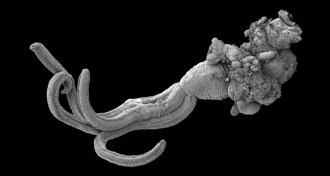 Animals
AnimalsAntarctic waters may shelter wrecks from shipworms
Ocean currents and polar front form 'moat' that keeps destructive mollusks at bay.
By Susan Milius -
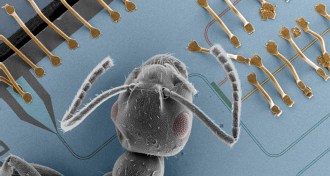 Quantum Physics
Quantum PhysicsQuantum teleportation approaches the computer chip
Researchers speedily transmit information from one tiny circuit to another on solid-state device.
By Andrew Grant -
 Psychology
PsychologyMental disorder seen as ‘badness, not sickness’
Health workers tend to consider borderline personality disorder a tag for patients who are difficult or impossible to treat.
By Bruce Bower -
 Health & Medicine
Health & MedicineRacial homogeneity in early childhood may affect brain
In lab study, kids who lived in single-race orphanages have difficulty interpreting emotions on faces with foreign features.
-
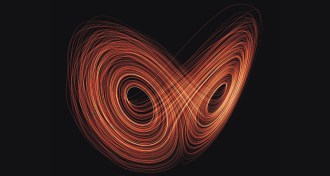 Psychology
PsychologyRatio for a good life exposed as ‘nonsense’
A heralded calculation of people’s ability to flourish is a mathematical mirage, researchers say.
By Bruce Bower -
 Humans
HumansDNA reveals details of the peopling of the Americas
Migrants came in three distinct waves that interbred once in the New World.
-
 Earth
EarthEmissions could fuel global warming for millennia
Climate simulation projects effects of greenhouse gases farther into the future than ever before.
-
 Tech
TechHybrid race car of transistors debuts
A new transistor combines the essential features of high speed and low energy consumption.
By Andrew Grant -
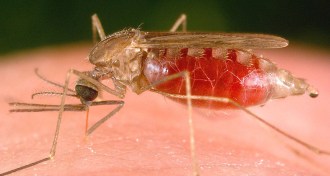 Health & Medicine
Health & MedicineVaccine protects against malaria in early test
A series of shots enables volunteers to fend off a live infection by the disease-causing parasite.
By Nathan Seppa -
 Neuroscience
NeuroscienceCaffeine shakes up growing mouse brains
When pregnant mice consumed caffeine, their offspring had altered neurons and faulty memory.
-
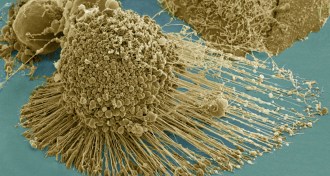 Science & Society
Science & SocietyHeLa genome offers clues to cells’ cancerous nature
The genetic sequence is published along with an agreement to protect the privacy of the family of the cells’ provider, Henrietta Lacks.
-
 Science & Society
Science & SocietyFlu researchers plan to repeat controversial work
The scientists who made the H5N1 strain transmissible between ferrets intend to do the same with H7N9.